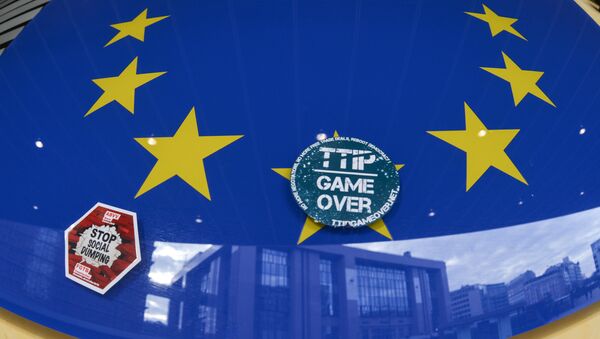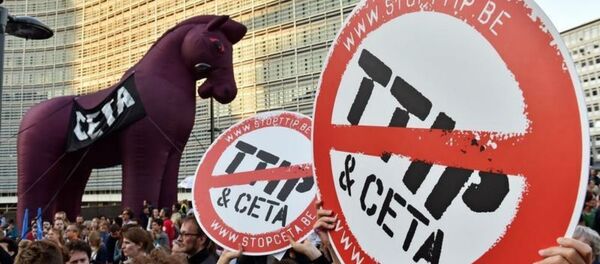According to the court, nothing justifies excluding legal acts, such as the decision to start talks on international agreements, from democratic debate. The European initiative against TTIP gained an unprecedented 3.3 million signatures in 23 EU states, and thus should have been considered by the European Parliament.
On Tuesday, the European Commission, headed by Jean-Claude Juncker, made the decision to allow EU nationals to express their will regarding TTIP. Thus, the organizers of the "Stop TTIP" campaign will be able to once again collect signatures against TTIP starting from July 10.
Tool of direct democracy
If the "Stop TTIP" campaign gains the necessary number of signatures, the European Commission will have to react within three months, as it cannot refuse to register ECI without proper reasons.
'Economic NATO'
Critics of TTIP, calling it an "economic NATO," complain about the lack of transparency surrounding the deal and consider that this agreement will benefit only transnational corporations, which strive for less control and regulation in Europe. European experts say that Washington does not make sufficient concessions in regulating product standards, and in the current form the TTIP will be much more beneficial to the United States than Europe.
The TTIP would establish a free-trade zone comprising the United States and the 28-member EU. Washington and Brussels began talks toward the agreement in 2013, but details of its proposed terms have not been made public, save leaked materials.
Trade relations between the United States and Europe were put into question after US President Donald Trump assumed office and announced a shift toward bilateral deals, thus calling TTIP negotiations into question. If completed, the TTIP would be the largest trade deal ever reached.



